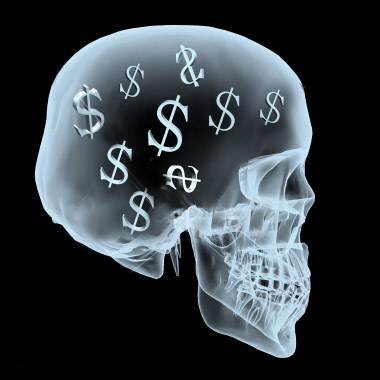Who is John Galt? Obviously, Not a Neuroscientist.
Capitalism gained a solid foundation in the 19th and 20th centuries due to the development of several philosophies of human nature, all of which proposed a rational, self-sufficient individual to be the most important element in any  society. One author in particular, the famously arrogant Ayn Rand, who once said “emotions are not tools of cognition” advanced the idea that humans have direct contact with reality through sensory perception, and thus could inductively and deductively produce logical concepts of the world which exactly reflected the nature of reality. This idea, combined with the assumption that humans have free-will, led Rand and others to the conclusion that the individual’s rational pursuit of survival, property and happiness was an inalienable right, and thus laissez faire capitalism remained the only moral political system.
society. One author in particular, the famously arrogant Ayn Rand, who once said “emotions are not tools of cognition” advanced the idea that humans have direct contact with reality through sensory perception, and thus could inductively and deductively produce logical concepts of the world which exactly reflected the nature of reality. This idea, combined with the assumption that humans have free-will, led Rand and others to the conclusion that the individual’s rational pursuit of survival, property and happiness was an inalienable right, and thus laissez faire capitalism remained the only moral political system.
This was all nice and fine for a society that knew next to nothing about human psychology and brain physiology. But much of the data gathered since suggests that humans are irrational, lack an ability to directly perceive their environment through sensory perception, and use emotions as their guides in nearly all decision making.
As an example of human irrationality, consider the Ultimatum Game, in which one subject is given an amount of money, say $10, and told to give any amount of this to a second subject. Both subjects are informed that if the receiving subject refuses to accept the offered amount, neither subject gets to keep any money at all.
The receiving subjects tend to reject stingy offers, preferring an outcome which actually grants them less money than they would have received if they had simply swallowed their pride and accepted the puny sum.
Further evidence for human irrationality can be seen in a study which asked its subjects to select a bar of soap to purchase among several different types. Subjects invariably justified their choice of one particular bar of soap, referencing its superior scent, sanitization capacity, and low price. Video records of the subjects revealed that they persistently caressed the smooth, ovular shape of the “superior” soap bar. The same soap’s popularity plummeted when it was presented in a rectangular shape.
Indeed, it appears that as humans we are often unknowingly overwhelmed by our whims and irrational urges. What, then, does this mean for capitalism?
If anything, it’s safe to say that as pursuers of happiness, we humans are at risk for making irrational decisions and conclusions about what will make us happy. We hoard electronic gadgets, eat sugary foods, and cram our brains full of reality TV and advertisements, all with the idea that these things bring us comfort and fulfillment. Our cities expand, our consumption of natural resources escalates, and our waste accumulates, everywhere. Still, we act surprised when we discover the rising rates of ADD, obesity and depression, and we somehow overlook the fact that our existence will be endangered upon the depletion of our finite resources.
Through adherence to a laissez-faire economic system, our inability to be consistently rational jeopardizes our survival. Hopefully, the influence of neuroscience and psychology will extend over the realm of politics and economics in time to save us from ourselves.
The development of interpersonal strategy:
Autism, theory-of-mind, cooperation and fairness -D. Sally, E. Hill
Messages and Myth – Dan P. Millar
For the New Intellectual – Ayn Rand